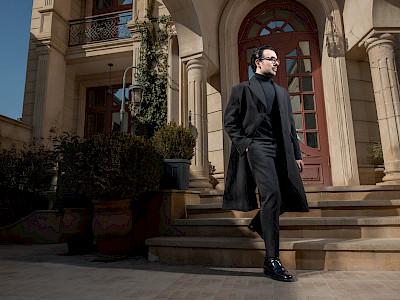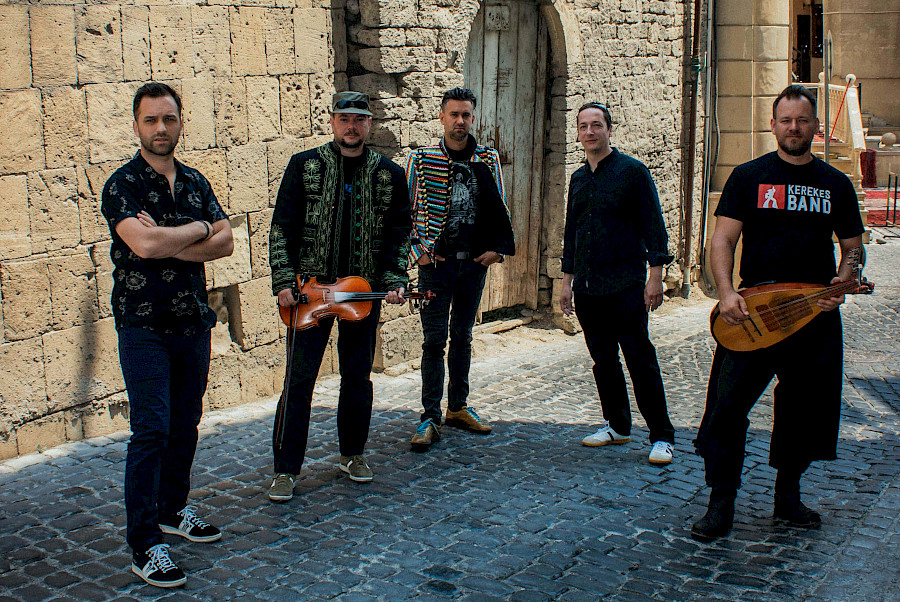
Their joint artistic journey began 25 years ago. At that time the schoolchildren were brought to music, as they claim, by love... Love to folk and rock music. Today the creators of "Hungarian funk", ethno-funk group Kerekes Band tours to different countries, introduce the world to Hungarian ethnic music and perform folk songs of the countries they visit. In Azerbaijan, they performed the folk song Sarı Gəlin.
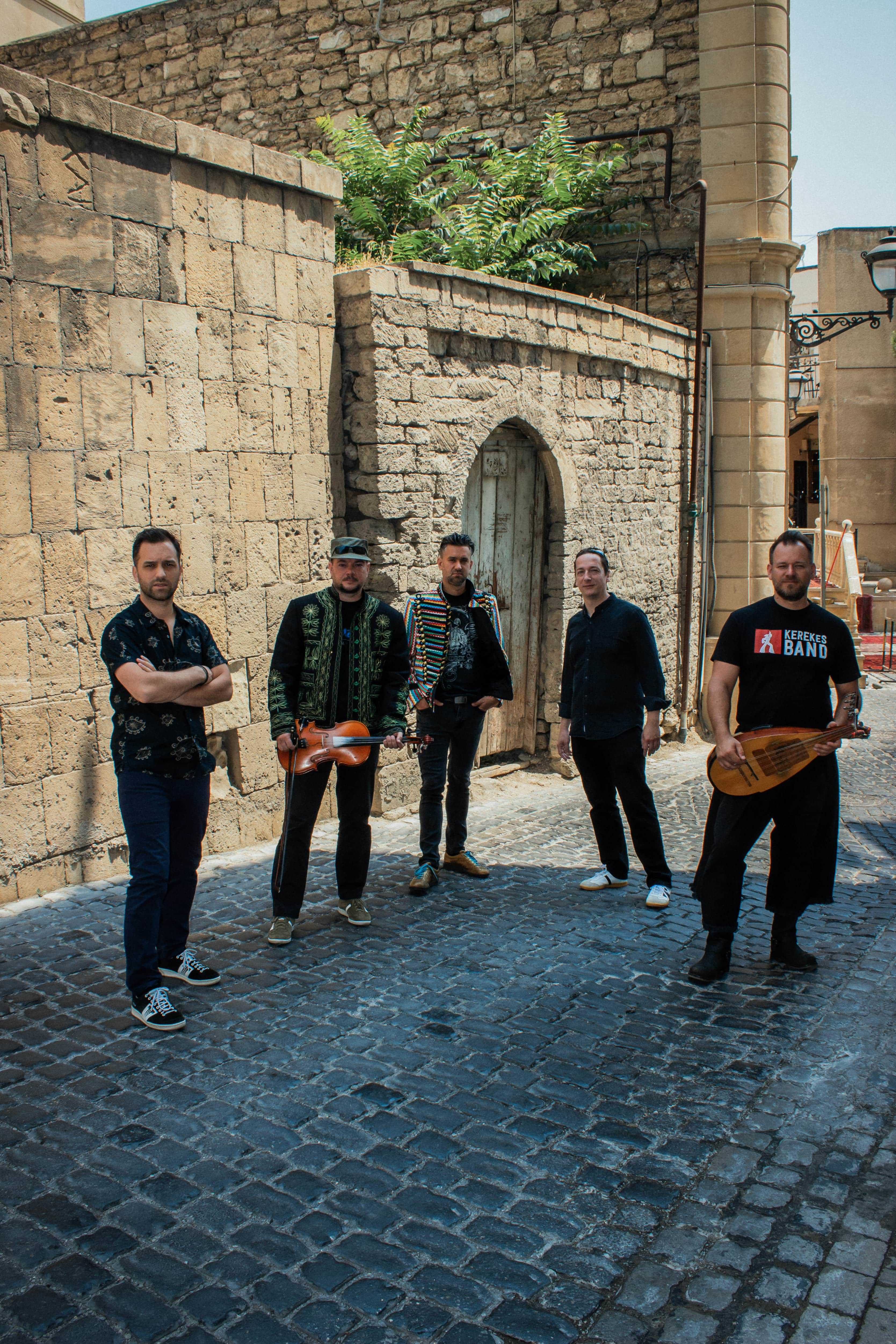
People call you freedom fighters. Why, in your opinion?
Victor: A long ago in Hungary was a very common culture of shepherds, which is closely intertwined with robbers. They had their musical instruments like flute, kobza. And that still remains the same to this day. They probably call us like that, because we support this culture by trying to revive it.
How is your creative process going? Do you write music by getting together?
Zsombor: Since we are an ethno-funk group, we base on ethnic motives. Then we add dynamism to it. This process can be compared to a tree that grows from a single planted seed. Everyone takes part in this. It is very important for us that the music we create would be liked by every member of our group. Usually if during making music someone does not like it, we start discussions and try to make a final product that everyone likes. If it doesn't work, then we put it away for a while.
What success means to you? How do you know the concert was successful, or vice versa?
Ákos: I run my statistics blog, which calculates how many people in front of the stage started dancing, how many kisses were blown towards me and who was holding hands. I try to fix all these important moments with my eyes, and then after the concert I do the math.
Zsombor: The concert has three main elements. The most important thing is the audience and how it feels during the concert. The second – how the band feels, the third – sound technique: how music sounds, how good the hall is, which technical equipment is used. And a good concert is possible in case at least two of these important factors were on top. Sometimes it happens that the club cannot afford high-quality equipment. But this does not prevent the band from holding the concert at the highest level. Well, and if three factors are at a high level, the concert can be surely considered excellent.
Victor: The easiest way to observe this is abroad, where people are unfamiliar with our art. At some festival, for example. If after 20-30 minutes from the beginning of the concert people not only do not leave, but on the contrary, keep coming, it demonstrates the high level of the concert.
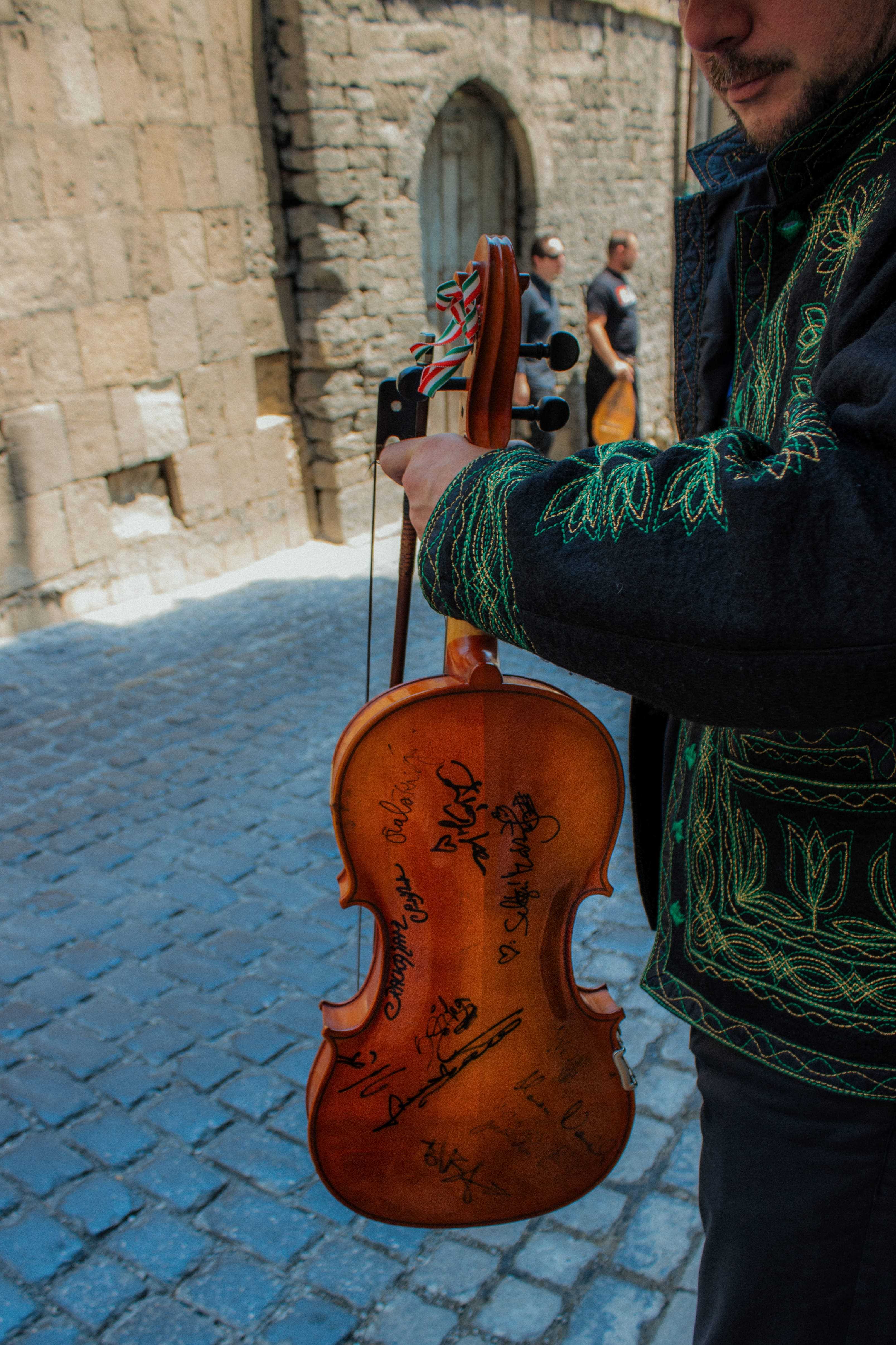
Do you strive to popularity? Or are these all formalities and the process of making music itself is much more important to you?
Victor: We started playing 25 years ago, when we were still schoolchildren. And, of course, it was love that brought us to music. Some musicians dream of performing at the Eurovision Song Contest or winning something, who only care about titles, pedestals. Often such musicians and singers cannot succeed, because you need to truly love music.
Peter: There should be chemistry between the members of the group. And the joint creative process should bring joy. That's what's the most important. Yeah, that's great when we are known. But popularity is not the most important thing musicians should aim for.
Zsombor: We were on Mədəniyyət TV channel yesterday, spent 40 minutes on air – and if you see what was going on there, then, you will definitely understand our main goal in music. Ethno and folk music is certainly not pop. As a musician of this musical direction, it is difficult to make a major hit and get into some chart. Anyway, it doesn't matter to us. Such music is not for everybody, not everyone can understand it. So we have no goal of releasing a hit and conquering the world public. We have our own style and there are people who understand it and like it. Of course, we would like to have more people like that.
How did you come up with the name of your band and what does it mean?
Zsombor: I made up this name because the word Kerekes is very well spelled in all languages, and it is easier to conquer the world audience with it. I'm joking. In fact, we created our very first album in the territory of so-called Dinash. We have a circular dance, it is called "kerik", which means "circle." So we decided to name the band Kerekes. Only at first were we "Kerekes edites" i.e. "Kerekes group." When we left Hungary, we realized that this word was hard to pronounce and replaced it with the word band.
Do you have role models among Hungarian or world bands, or do you prefer not to emulate anyone?
Victor: In principle, there is no certain group. Dynamics are important in our music, something that cannot be felt in the pop. But among rock musicians we like Jimmy Hendrix, among jazz – John Coltrane. These are musicians who managed to light up the public with their internal fire. It's very important in music. We're also trying to light up our public. I can even say more, our main goal is to make sure that the audience does not sit at our concerts, but dance.
Zsombor: This also happened in ancient Hungary, when musicians knew each other and knew almost every listener. And they tried to cheer people up, make them sing along and dance.
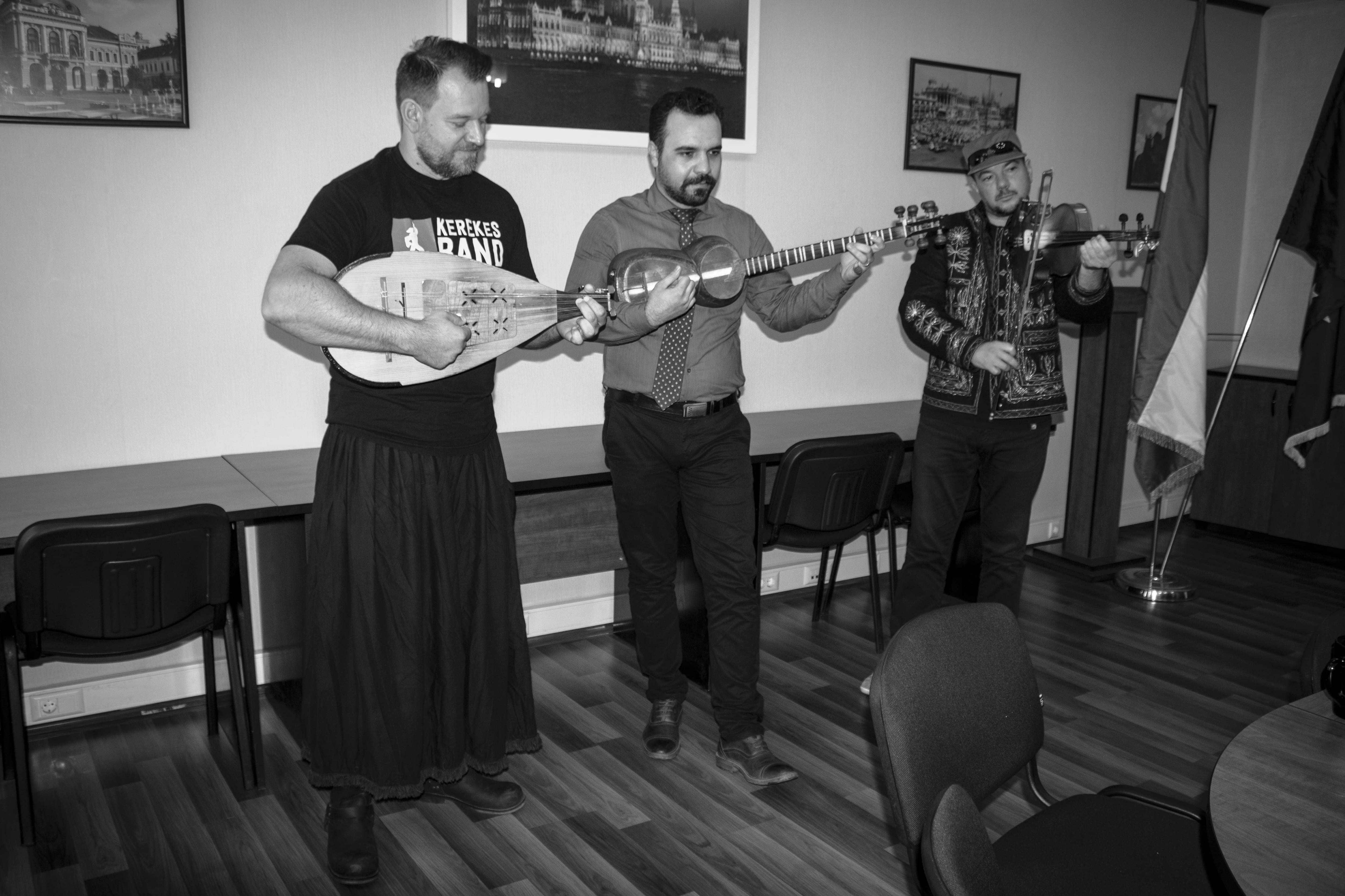
What is the music for you?
Zsombor: Music is like a spinning circle, just like the name of our band. First we take the maximum from music, and then we give it back.
Csaba: This spinning circle unites everything - us, the public, music.
You are the inventors of the Hungarian funk genre. What's its feature?
Victor: We play both folk instruments – viola, old flute of shepherd and kobza – and rock – bass guitar and drums. It turns out to be an unusual mix in which neither of the instrument takes over from the other, neither is more important than the other. And in each performance it is possible to feel the "harmony of two worlds". Our music has such an original sound thanks to the mix of two completely different styles.
Is this your first time in Baku? How do you find the city? Please share your impressions.
Peter: It is not the first time for Sombor, he visited Baku a few months ago with his wife. We sent him here to explore (Laughs).
Zsombor: We have been in Baku for three days. We stopped near Icheri Scheher and already managed to see it inside and out. We really like the atmosphere that reigns here. These narrow streets, old buildings that are on the UNESCO list. Yesterday we decided to walk along the seaside. And we discovered the other side of Baku. We didn't expect to see such modern buildings at all. But even in hi-tech buildings like the Heydar Aliyev Center, Flame Towers something folk could be noticed. And it's very close to our music.
Ákos: When we travel around the world, very often, almost everywhere, I hear Hungarian speech. But not here. And it let me get lost a little bit. It was pleasant for me.
Is your music more targeted for young or mature people? Who is he, your listener?
Sombor: Actually, we play for everyone.
Victor: Our music is not conservative, it does not have a classic sound. I think it's suitable for free-thinking people who are open to something new. And there really are no age limits.
For people who are not familiar with your music, which songs do you advise to start from?
Victor: Probably with Ethno Funk or Csango Boogie
Zsombor: Ethno Funk, Back to Folk
Peter: Back to Folk, Szilaj
Csaba: I don't want to answer, I love all our songs.
Ákos: Csango Boogie
Interview: Guzal Kamalatdinova
Photo: Sona Nasibova


